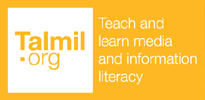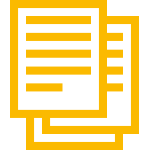

Serbia
-

RSF World Press Freedom Index 2021 (position)
93of 180
-

RSF World Press Freedom Index 2021 (score)
32.03
-

Media literacy (ranking in Europe)
29of 35
-

Media literacy (score)
32of 100
-

IREX vibrant barometer (score)
15of 40
Media landscape
The media concentration in Serbia is extremely strong, and most influential outlets are under direct or indirect control of the ruling party. (1) High-circulation tabloids and TV stations with national coverage often use open propaganda in favor of the government, without resistance from spreading hate speech, disinformation and nationalist discourse. Institutions that are supposed to protect the integrity of the media space, primarily the Regulatory Body for Electronic Media (REM), are very weak, influenced by the ruling party. Budget funds distributed for media projects are mainly channeled to pro-government media outlets.
Citizens who want to be informed do have access to various sources of information, including features from opposition parties and investigative journalism. The media scene is however very polarized and divided between pro-governmental and opposition editorial policies. This is visible in the printed media scene and, to a larger extent, in electronic media outlets: two cable-operators, SBB and Telecom, are in open competition for the market and promote distinct editorial policies.
Several independent media outlets (CINS, BIRN, KRIK, Pištaljka) are committed to investigative journalism, primarily in the field of corruption and crime, and their work is primarily funded by readers and foreign donors. Their audience is however quite marginal compared to mass media viewers.
Journalists
Freedom of speech is guaranteed by the Constitution of Serbia, but in reality it is violated in several ways: by the threat of lawsuits or criminal charges against journalists for other offenses, lack of transparency in media ownership, editorial pressure from politicians and politically connected media owners, direct pressure and threats against journalists (2). The Independent Journalists’ Association of Serbia (NUNS) counted 32 physical assaults and 157 cases of pressure on journalists during 2020 (3).
Audience and media literacy
The level of media literacy in Serbia is very low (4), despite efforts to introduce media literacy in formal education. According to several IPSOS surveys, the percentage of citizens in Serbia who stated that they mainly or completely trust the media only slightly exceeds the percentage of surveyed citizens who say they do not trust the media. Traditionally, television stands out as the medium with the highest percentage of trust. (5)
Medias outlets

National media
Istinomer
Istinomer is a fact-checking media outlet dedicated to the evaluation of statements by public officials and politicians from Serbia, evaluation of news, as well as to analyzes of important social and economic issues. Statements are evaluated according to the criteria of truthfulness, consistency and fulfillment of promises. Istinomer is a verified member of the International Fact-Checking Network (IFCN).
FakeNews Tragač
FakeNews Tragač is a fact-checking website dedicated to countering disinformation published in Serbian media outlets. It is established as a project of the Novi Sad School of Journalism and combines response fact-checking with journalism education and a media literacy training platform aimed at the general public.
Raskrikavanje
Raskrikavanje is a fact-checking website, established as a project of the Crime and Corruption Reporting Network (KRIK). Platform evaluations are based on checking the assertions published in the media and identifying relevant facts. It offers „Risky media list“, which contains the media outlets that, within last two months, publish at least three articles that had some of the elements of disinformation.

Regional media
Agence France Presse (AFP)
Since 2017, AFP has been developing a fact checking service, which reviews news casted in the media and social networks. In the Western Balkans, AFP currently fact checks news in Serbia, Montenegro and Bosnia-Herzegovina, as well as on Facebook and other social media. In 2021, the press agency launched a worldwide public campaign on media literacy and basic fact checking tools.






